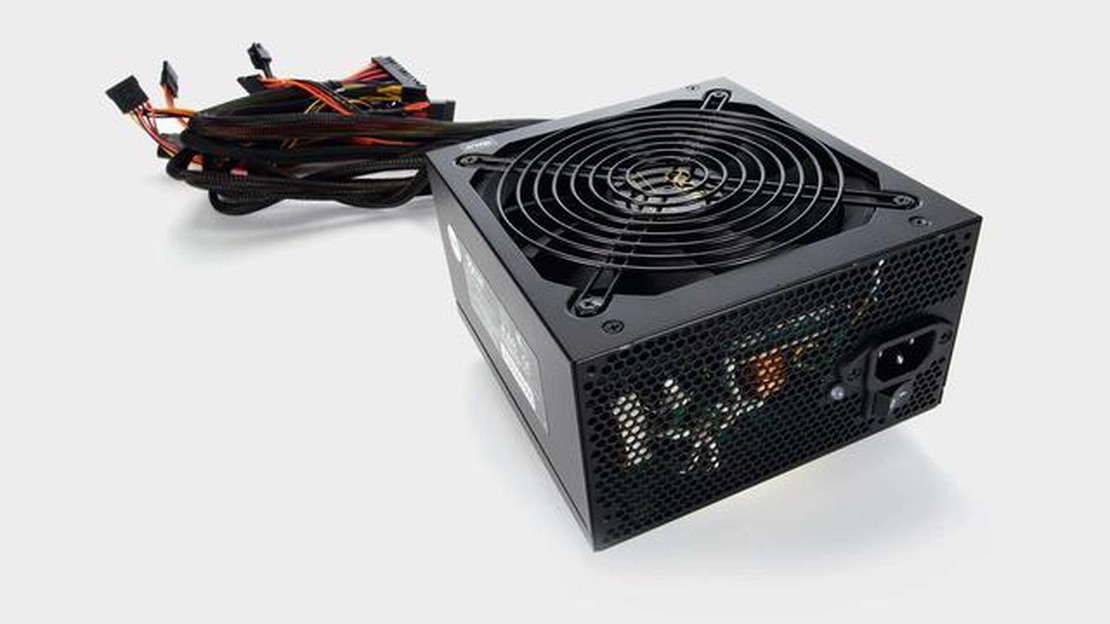Star Wars Jedi: Survivor - Solving the Crypt of Uhrma Door Puzzle
How to solve the Crypt of Uhrma door puzzle in Star Wars Jedi: Survivor In the latest installment of the Star Wars Jedi series, players find …
Read Article
When building a gaming PC, choosing the right power supply is essential. The power supply unit (PSU) is responsible for providing your components with the necessary power to operate efficiently and safely. Without a proper PSU, your PC may not perform at its full potential or could even be at risk of damage.
There are several factors to consider when selecting a power supply for your gaming PC. One of the most important considerations is wattage. The wattage rating determines how much power the PSU can deliver. It’s crucial to choose a power supply with sufficient wattage to support your components, including the CPU, GPU, and any additional peripherals.
Another crucial factor to consider is efficiency. Power supplies come with efficiency ratings, which indicate how effectively they convert AC power from your outlet to DC power for your components. Higher efficiency ratings mean less wasted energy, which can lead to lower electricity bills and less heat generated by the PSU.
It’s also important to consider the quality and reliability of the power supply. Poorly built or unreliable power supplies can lead to component failures or system instability. Look for power supplies from reputable manufacturers with good reviews and warranties.
Finally, modular power supplies offer additional flexibility in cable management. Modular PSUs allow you to connect only the cables you need, reducing clutter and improving airflow within your PC case. This can lead to better cooling and overall system performance.
By considering these factors and researching reputable power supply options, you can ensure that your gaming PC has a reliable and efficient source of power, allowing you to fully enjoy your gaming experience without worries.
Choosing the right power supply for your gaming PC is crucial to ensuring that your system runs smoothly and reliably. Here are some important factors to consider when selecting a power supply:
It’s important to invest in a high-quality power supply to prevent system instability, component damage, and potential data loss. By carefully considering the factors mentioned above, you can choose the perfect power supply for your gaming PC that meets your requirements and ensures a smooth gaming experience.
Read Also: Exploring the World of Slenders in Roblox: Everything You Need to Know
When building a gaming PC, choosing the right power supply is crucial. The power supply unit (PSU) is responsible for providing electricity to all the components of your system, and getting the right one ensures your PC runs smoothly and reliably.
Here are some key factors to consider when selecting a gaming PC power supply:
Read Also: Master the Art of Using Bowler in Clash Royale: A Comprehensive Guide
By considering these factors, you can choose a gaming PC power supply that meets the needs of your components, provides stable power, and ensures the longevity of your system. It’s an essential component that shouldn’t be overlooked when building or upgrading your gaming PC.
Choosing the right power supply for your gaming PC is crucial for optimal performance and longevity of your system. Here are some benefits of making the right choice:
While it might be tempting to overlook the importance of the power supply in your gaming PC build, it is crucial to invest in a high-quality and reliable unit. A good power supply not only ensures efficient power delivery but also protects your valuable components, enhancing the overall gaming experience.
When choosing a power supply for your gaming PC, you should consider factors such as wattage, efficiency rating, modular or non-modular design, brand reputation, and price.
You can determine the appropriate wattage for your gaming PC’s power supply by calculating the total power consumption of your components, including the CPU, graphics card, and other peripherals. It’s recommended to choose a power supply with a slightly higher wattage than your calculated result to allow for future upgrades.
The efficiency rating of a power supply indicates how efficiently it converts the AC power from your wall outlet into DC power for your PC. A higher efficiency rating means less power is wasted as heat, resulting in lower electricity bills and a more environmentally friendly system. It’s important to choose a power supply with a high efficiency rating, such as 80 Plus Gold or Platinum.
Modular power supplies are worth the extra cost for many gamers and PC builders. They allow you to detach unused cables, which can improve airflow and cable management inside your case. This can lead to better cooling and easier installation. However, if you don’t mind the extra cables, a non-modular power supply may be a more cost-effective option.
How to solve the Crypt of Uhrma door puzzle in Star Wars Jedi: Survivor In the latest installment of the Star Wars Jedi series, players find …
Read ArticleMobile Legends How To Open Adventurer Chest? Mobile Legends is a popular mobile game that offers a variety of features and rewards for players to …
Read ArticleHow To Prevent Your Thumb From Hurting While Playing Brawl Stars? Brawl Stars is an incredibly addictive mobile game that has taken the world by …
Read ArticleHow to solve the church puzzle in Resident Evil 4 Remake In the highly anticipated remake of Resident Evil 4, players will encounter numerous puzzles …
Read ArticleHow To Sync Clash Of Clans With Game Center? Clash of Clans is one of the most popular mobile games, with millions of players around the world. If you …
Read ArticleHow To Download Call Of Duty Warzone? Call of Duty Warzone is one of the most popular battle royale games available today. If you’re eager to join the …
Read Article